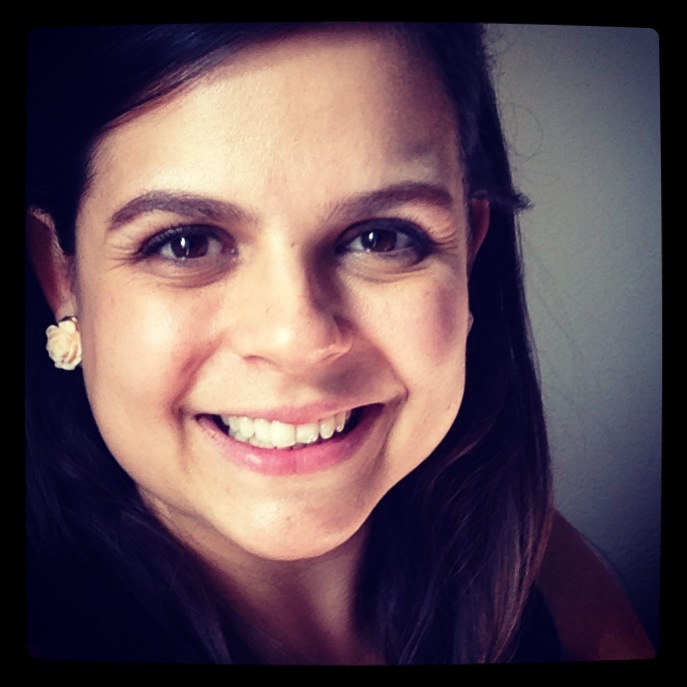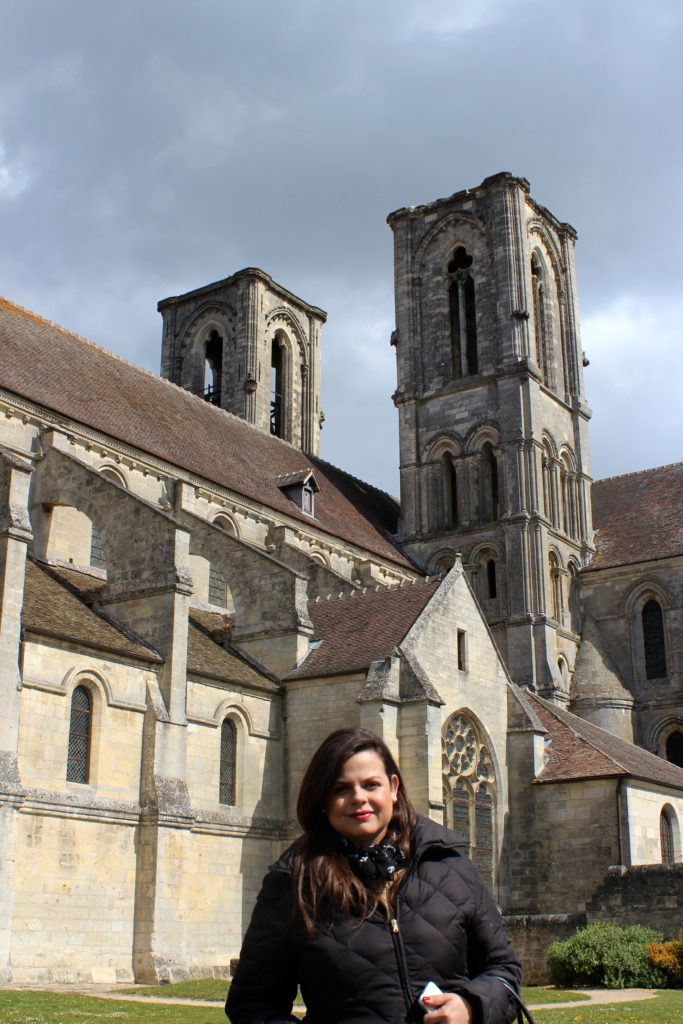
Raising little nomads and thriving abroad (Interview with Flor García)
Raising little nomads and thriving abroad (Interview with Flor García)
Today I have the enormous pleasure of interviewing Flor García, a charismatic Venezuelan native, expat wife, cultural trainer, speaker and woman behind the popular blog “Little Nómadas”. She tells us about her experiences living abroad, raising three little nomads, as she calls them, and shares valuable advice on how to thrive overseas.

CQ: Tell us a little bit about your family’s international journey.
FG: We are a family of five traveling around the world and learning about new cultures along the way. Dad and the kids were born in the United States and I was born in Venezuela.
In 2002 my husband and I got married in Fort Worth, Texas and lived there until 2014. Those were challenging times raising three children, my husband attending university, reinventing my career while integrating ourselves to another culture. We matured so much in those years!
In 2014 we moved to Germany due to my husband’s new job and we started an exciting adventure learning a third language, getting to know the German culture and driving around Europe.
CQ: What’s one valuable thing you’ve learned in each of these destinations?
FG: I guess there is so much I have learned all these years. In the United States, I learned to be more independent. My family and friends were far away and I found myself raising kids, studying, and getting to know my way overseas without their support. So I had to redefine what “being independent” meant to me at that time and the way I would have to face challenges by myself with the love and understanding of my husband.
In Germany, I discovered that being curious is a key factor to meet new people and adapt faster to a new culture. I’m always curious and motivated to know more about diversity. I could also add “don’t take anything personal”. People react accordingly to their experiences, cultural background and knowledge of others; unless it is a blunt racist comment, those “not so nice” reactions are most of the time based on that person’s beliefs and they have nothing to do with you.

CQ: What are your definitions for the much-used terms “Third Culture Kids” and “Global Citizens”?
FG: To me a Third Culture Kid or TCK is a child that grows up exposed to two or more cultures. Usually this exposure comes from years spent abroad or multicultural families.
When I think about a Global Citizen, my mind pictures a person who is comfortable everywhere he or she goes. A person who is curious about other countries and their cultures and isn’t afraid of leaving their comfort zone to explore the world.
CQ: “Identity” has been a very rigid concept in the past, one that doesn’t fit for many people nowadays – certainly not for third culture kids and global citizens. What does “identity” mean to you and how would you propose we teach this concept to our multicultural children?
FG: In my opinion identity is such a broad and flexible term. I think that today’s world claims a broader and much more adjustable definition of “identity”. To me “identity” involves affections, belonging, values, memories and history, and for multicultural children these principles might translate into belonging to more than one physical place, loving people in different countries, interacting with diverse cultures and having as a foundation the values of a multicultural background and upbringing.
How to promote a well rounded identity in multicultural children? Let’s encourage curiosity, reading about other people’s traditions, reinforce our own culture and love the possibility of calling “home” more than one place. We usually describe our children’s identity as a colorful mosaic!
FG: For us it is very important to keep our children connected to their roots. We usually expose our kids to Venezuelan traditions: music, food, literature and history. We promote American traditions at home as well, specially Texan music and food.
However, it is equally relevant to learn about our destination country to create a sense of belonging. For that we explore our new surroundings, read a lot about the history of that place in particular (this helps to explain the locals’ behaviors and customs) and volunteer at the local church to meet new people. I think that once you accept the fact that your family’s identity will be multicultural, it’s easier to balance diversity as part of our own individual identities. Go with the flow, don’t resist!
CQ: Shared traditions can create a very strong bond between people. What are your most treasured family traditions?
FG: To guarantee some continuity during transition due to moving abroad, we have and nurture some traditions at home. They are our commonalities in the middle of so much diversity. We love to play board games on Sunday afternoon, have pancakes and Venezuelan style eggs (Perico) on Saturday and we always spend Christmas with relatives. I think these shared traditions constitute the base of our global family.

CQ: What has been the most difficult part of “nomadic life” for you?
FG: I think the most difficult part of our nomadic life has been missing out on family and friends events. It is sad to miss birthdays, weddings, graduation, and other important milestones that our relatives are celebrating or going through far away from us.
CQ: What advice can you give to women and families struggling with expat life and raising third culture kids?
FG: Many women contact me on a regular basis asking me about happiness overseas. My advice is always the same: accept the fact that at this precise moment you and your family have to live there. Don’t fight it. Review the reasons that pushed you to make the decision to move abroad and embrace your reality.
Once we stop wasting our money and energy fighting against the fact that we are living far away from home, we start concentrating on creating a new life, falling in love with the host country and emotionally growing as citizens of the world. You have to give yourself the chance to enjoy change!
CQ: You’re a cultural language trainer, tell us about the work you do:
FG: Since 2011 I teach the Spanish language and Latina culture to children and adults in both the United States and Germany. I am a speaker and a writer and I give Intercultural Communication seminars to expat families. I am crazy in love with my cultural background and my mother tongue, therefore being a language and cultural trainer has become my dream job!
CQ: Where can we read and see more of you?
FG: Three years ago I started my own blog to inspire Latin American families moving overseas. I also offer Spanish training in person and online to adults and children interested in getting to know more a about the Spanish language and culture. You can read more about me and my project Little Nómadas at:
Blog: https://littlenomadas.com/
Instagram: https://www.instagram.com/littlenomadas/
LinkedIn: https://www.linkedin.com/in/flor-breton-garcia-a29b9040/
CQ: What’s your biggest wish for the future?
FG: I think my passion for traveling around the world has allowed me to visit amazing places and get to know interesting people. It is important to me that my husband and I pass this passion of being “on the move” to our children who are growing to become citizens of the world or Little Nómadas like we call them.
But to be able to appreciate diversity we also need to focus on our own culture and biases, therefore exposure to Venezuelan roots is a key element of our children’s upbringing.
Sadly Venezuela’s current critical situation doesn’t allow us to visit frequently and stay there for longer periods of time. But I trust that sooner than later freedom and peace will come to all of those Venezuelan families that suffer because of the ambition and corruption of the government for the last twenty years. My biggest wish is to retire in one of Venezuela’s beautiful beaches! I miss the blue Caribbean Sea so much!
CQ: How can we help Venezuela?
FG: One of the things I admire the most about Venezuelans is their resilience and effective way of handling difficult situations. The humanitarian crisis suffered by our country has allowed people to show their best intentions. Solidarity is a value well shown by every Venezuelan that works for those in need.
Personally, I have dear friends and family members who are actively involved in amazing initiatives to help fellow Venezuelans. Please, take a minute to check out these links below and choose the right cause to support. I guarantee that your donations will reach children and adults in extreme poverty suffering the horrible consequences of government corruption and economic disaster.
https://www.noticiasbarquisimeto.com/2018/03/04/proyecto-madiba-el-rugby-como-puente-a-la-insercion-social-de-los-ninos-del-barrio-el-trompillo-en-barquisimeto-fotos/
https://www.instagram.com/fundacionflordelaesperanza/
https://www.instagram.com/somos.huellas.chile/
https://www.instagram.com/hijosdemoran/
https://www.instagram.com/fundacionflordeluz/
https://www.instagram.com/nawaraos/
https://www.instagram.com/barrigallenacorazoncontento_ve/

